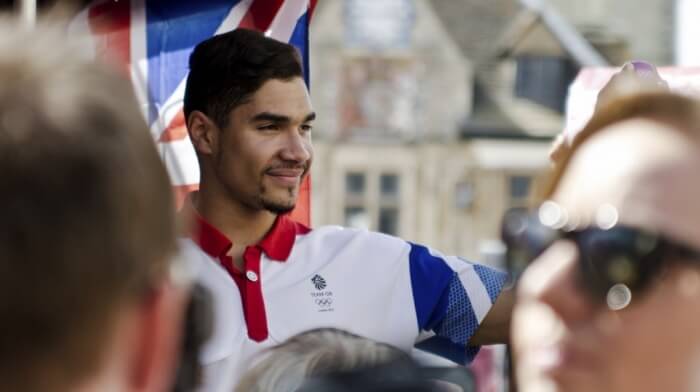As Rio 2016 draws to a close and Team GB fly home with their record medal haul, what can businesses learn from the Olympic state of mind?
Rio 2016 Has Inspired Business Leaders To Live The ‘Olympic Experience'
As Rio 2016 draws to a close and Team GB fly home with their record medal haul, what can businesses learn from the Olympic state of mind?

As the Rio Olympics come to a close and we marvel at the athletic achievements, the Olympians often seem superhuman, far removed from us mere mortals. But, in fact, business leaders around the world live an "Olympic experience" on a daily basis, whether it’s collaborating as a team, celebrating the achievement of a hard-won goal or feeling the agony of a loss.
There is something universally inspiring about The Olympic Games, which unites us as a country to support our teams. Yet, it’s not just the performances which are motivating, but the attitude towards performance.
The motto of the Olympic movement is Citius, Altius, Fortius, which means: Faster, Higher, Stronger. This could be a relevant mantra for all businesses across the globe.
On a smaller scale, there are also many Olympic-inspired lessons that can be applied to help organizations go for gold. Here are just a few:
1) Dream big and make a plan to achieve your vision
Rio 2016 has been full of inspirational stories from athletes about facing difficulties, from poverty-stricken backgrounds to life-threatening illness. These athletes dreamed their way out of hardship by daring to put a plan into action.
Talent alone is not enough. Olympians carefully consider every part of the process, viewing their bodies like machines that must be tweaked for peak performance. They take a holistic view of themselves planning carefully what they eat, how often they train, who they train with, how much physiotherapy they have, how much sleep they get, et cetera.
Just as Olympians can’t rely on pure talent, businesses can’t just rely on a big idea, or past profitability or a talented CEO. They need a holistic strategy and a single view of their entire organisation to ensure they are continually moving towards that strategy, despite the inevitable setbacks along the way.
2) Adapt to different circumstances
While it’s vital to have a plan and to stick to it as much as possible, it’s also crucial that Olympians aren’t too rigid in their thinking and can adapt to different circumstances. This means being agile under pressure, like a sailor faced with dramatic weather changes or a boxer who sustains an injury mid-fight.
Some factors will be in the athlete’s control, others will not. Similarly, businesses may be facing external changes, like a change in government regulations, or internal, like a new CEO. Whatever the change, the winners will be those that effectively and quickly adapt to the new status quo rather than wish circumstances were different.
3) Listen to objective advice from a third party
Olympic winners often say they couldn’t have succeeded without their coach’s leadership and advice. That advice has become increasingly scientific, based on sophisticated data analysis techniques that can eke out competitive advantage the naked eye can’t see.
Likewise, businesses can derive huge benefit from an experienced, external eye in the form of a coach or mentor, as well as insight in the form of performance metrics. Much like athletic tracking, business data has grown increasingly sophisticated and scientific, allowing organisations valuable insight for pinpointing how, when and where to adapt.
4) Take risks
Olympians don’t win medals by playing safe. When gymnasts are choreographing their routines, for instance, they know it’s the high-risk routines that reap the most rewards, if they can pull them off. But this risk is carefully weighed, measuring vital data and metrics, to ensure the likelihood of striking Gold is balanced against that of real injury or failure.
Just as in sports, sometimes businesses need to move out of the safety zone and take big risks. And like athletics, data is increasingly able to monitor and mitigate business risks in real-time to ensure the best decisions are made. Of course, no matter how much data or expert advice you source, there will be times when you stumble and fall. It’s the ability to get back up and learn from your mistakes that ultimately makes a winner.
5) Work well as a team
Tennis star Andy Murray famously attributed his Olympic Gold win in London 2012 down to, in part, the sense of camaraderie he felt in Team GB. This extended to the volunteer “games makers” who were also credited with making the London Olympics a success and motivating Britain to achieve third place overall.
Olympians support each other and help build each other up. This year in Rio, Andy Murray and Juan Martin del Potro fought for gold during a four hour and two-minute tennis match. The game was intense and utterly compelling – when Andy Murray won the final point, both men met at the net in an emotional embrace.
In business, remember the work you produce and deliver both internally and externally isn’t only about you. It’s about the strength of your whole team, and respect of your opposition, a concept that athletes understand well.
People power cannot be underestimated in business today either – especially in the era of social media, which requires an empowered frontline staff who can respond directly to consumers, rather than await lengthy sign off. If a team coordinates and collaborates well, strategic vision can be transformed into operational success; employees stay motivated, work is not duplicated and internal conflict is minimised.
6) Think like a winner
In post match interviews, athletes often talk about how they visualised success before they performed and focused more on their strengths than their weaknesses.
That’s not to say that you should ever become complacent – in fact, sometimes, a bit of doubt is good because it can fuel determination and motivation. Like it has done for athletes returning to the Olympics after giving birth, or those who have suffered injuries or serious illness such as cancer.
There will always be critical bystanders who doubt your ability to stand out from the crowd, whether in business or sport, but those participants who ultimately win don’t let this affect their self-belief or their focus on the finishing line.
The best way, after all, to silence these critics is to stand on the podium and be recognised as the best in your field. As tennis champion Serena Williams says in the #DefyLabels ad she fronts for car brand MINI: “The only label that matters is Olympian.”
Thanks for signing up to Minutehack alerts.
Brilliant editorials heading your way soon.
Okay, Thanks!




